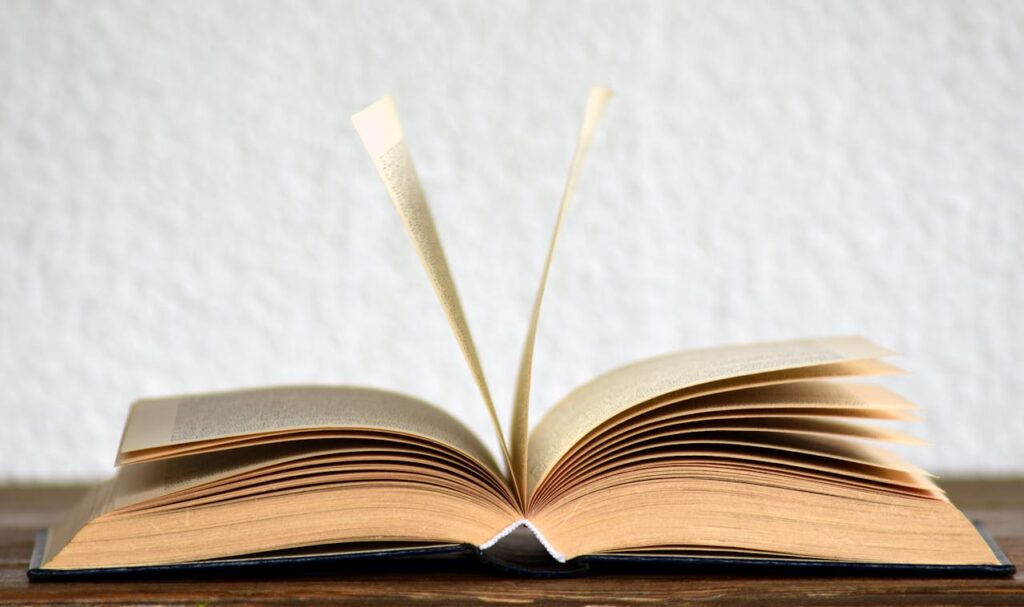Writing an IB Lit Extended Essay can stress you out, especially if it’s your first big research paper. No stress—I’ve been there many times, both as a tutor and as someone who’s helped IB students crush it. If you play your cards right and keep things organized, you can flip this scary task into a fun writing task.
So, let’s do it step by step. In this guide, I’m gonna break down how to write a Literature Extended Essay, from picking a dope topic to wrapping up your conclusion.
What Is an IB Literature Extended Essay?
The IB Literature Extended Essay is a 4,000-word research paper centered on a literary topic of your choosing. A thorough literary analysis grounded in a well-articulated research question is required for the EE, which is distinct from standard essays in that it does not only include summarizing a book. Students are required to analyze and evaluate literature, construct an argument, and present their results in an academically sound manner in this essay.
Unlike any other essay, the IB Literature EE demands in-depth analysis, critical thought, and organized reasoning. Students must create a clear research question and build a logical case backed up by written proof under the general IB standards. Additionally, students must show that they know literary techniques, subject growth, and, where relevant, historical or cultural background.
From what I’ve seen, students often make the mistake of choosing a topic that is too broad. An unclear research question results in a disorganized analysis and a weak case. IB examiners value detailed research, so having a unique topic is very important. However, before we get into it, let’s discuss choosing the appropriate literary work.
What Makes a Good IB Literature Extended Essay Topic?
Choosing a text is an essential first step that significantly affects your writing. When picking a book or literary work, keep these things in mind:
- Choose one work that really speaks to you. Researching and writing will be enjoyable if one is engaged in the book.
- The book should be challenging enough for a complete analysis. Critical literary trends, modern award-winning books, and classic literature are among great choices.
- Academic analysis is more thorough in certain books than in others. You may have a hard time finding research to back up your book choice if it has few criticisms.
- Choosing a less popular book instead of a famous one, like 1984 or Hamlet, can make your essay more unique. Make sure you have enough information to back up your analysis.
- Some books are better for literary analysis than others. A book with strong symbols, well-developed characters, or complicated ideas gives readers more chances to understand it differently.
Choosing the right book is the basis for writing a good IB Literature EE. After selecting a work that fits these criteria, you can begin to create a clear and specific research question.

How to Formulate a Focused Research Question for Literature EE?
In my experience, students often struggle to choose the appropriate research question. Because a poorly selected topic results in weak arguments and a complicated writing process, this decision has the potential to make or break your essay.
A standard error made by students is to choose a topic that is too general, which leads to a cursory analysis rather than a thorough examination of the literary work. However, if your topic is too specific, you may find obtaining sufficient evidence to support your arguments challenging.
So, a clear research question for the IB Literature Extended Essay should:
- Permit thorough literary analysis without being too broad.
- Encourage debate and conversation.
- Have sufficient textual evidence to substantiate the claims.
- Be engaging enough to keep your interest throughout the writing process.
Your Literature Extended Essay should feel like a discussion with the book. Choose a question that encourages deep thinking and analysis instead of summarizing the content. If your research question is unclear, you may summarize instead of analyzing the text.
Examples of Research Questions for Literature Extended Essay
Here are examples to show the difference between a good and a bad research question:
🚫 “How does Shakespeare show love?”
This question is too general. It includes too many shows and doesn’t have a specific topic. You may summarize love stories without giving an apparent reason or support.
✅ “How does Shakespeare use metaphors to show unreturned love in Twelfth Night?”
A more in-depth analysis of a literary technique (metaphor) and its role in a single play is made possible by this question’s specificity. It gives a clear guide for making arguments.
So, your research question should include a particular literary technique (like metaphor, narration, or symbols) and focus on just one text. These are essential factors for a well-structured IB Literature EE.
How to Plan and Structure Your IB Literature Extended Essay?
An organized academic research paper, the IB Literature Extended Essay is more than simply a lengthy essay. If you want to keep everything clear and coherent, you should follow the IB’s strict guidelines for its organization. The success of your IB Literature EE depends on its structure, which guarantees a logical progression of your argument and the relevance and emphasis of your research.
Your essay should follow this style according to general IB rules:
- Introduction (10%). Get the reader interested immediately with an attention-grabbing hook, then set the scene by explaining the literary work, posing a straightforward research question, and restating your thesis in a few short sentences.
- Body paragraphs (80%). Each paragraph should present one central point, back it up with details from the book, and include an analysis that connects to your research question. When needed, a high-grade essay also notes counterarguments or offers a more thorough theme investigation.
- Conclusion (10%). Give a summary of your key findings, a thorough response to your research question, and a final reflection on the literary value of your analysis.
Many students don’t realize how vital a clear structure is, but I’ve found that using a simple outline makes writing easier and makes your essay more interesting to readers.
Write the Introduction for a Literature EE
Make your first impression matter as the introduction defines you. A well-written opener grabs the reader and prepares the ground for your case.
A good IB Literature EE introduction needs to include the following:
- A hook. A provocative comment, rhetorical question, or arresting literary allusion meant to captivate the reader.
- Context. An outline of the literary work along with its applicability.
- Research question. Indicate your area of research concentration.
- Thesis statement. Your primary point of contention is in one succinct, straightforward line.
✅ Example
“Is the American Dream something one symbol can convey? At Daisy’s pier, the green light in The Great Gatsby stands for Gatsby’s yearning for an unreachable future. This essay will examine Fitzgerald’s use of this emblem to question the false impression of success.”
Why is this a hit? It quickly grabs the reader, offers the required background, and presents a convincing argument.
Main Body: Develop a Literary Analysis
Each IB Literature EE body line should follow a clear structure:
- Topic sentence. Introduce the main point of the paragraph.
- Evidence. Provide quotes or cases from the book.
- Analysis. Describe how this information backs up your main point.
- Link back. Connect the point to your research question and general case.
Including quotations is insufficient; you must examine them closely. One of the most frequent errors I see is students summarizing the book rather than dissecting literary devices. Examiners want critical involvement, not recounting stories.
Don’t let the stress of the IB curriculum hold you back.
Are you having trouble coming up with topic suggestions for your IB Extended Essay? Or do you need help with Internal Assessment?
Our experienced writers can help you choose the perfect topic and assist you with any assignment.
You can order an Extended Essay tailored to your specific subject and requirements.
Our experienced IB writers are always ready to help.
Simply click:

In my experience, using secondary sources really improves your essay. Reading scholarly papers, understanding the historical background, and studying literary criticism boost your analysis. Still, your voice should always be loud. Avoid compiling what others say. Instead, bolster your initial observations about secondary sources.
✅ Example
“Scholar Harold Bloom argues that Fitzgerald’s green light symbolizes Gatsby’s ‘impossible dream, shaped by the illusions of wealth and nostalgia.'” This perspective supports my claim that Fitzgerald’s criticism of the American Dream is bolstered by Gatsby’s inability to comprehend reality due to his fixation on the past.”
Using literary criticism, you can demonstrate the thoroughness of your research without allowing secondary sources to overshadow your critical analysis.
Write the Conclusion of a Literature Extended Essay
Your conclusion is your last chance to make a lasting impression. However, students often make the mistake of stating their argument without adding anything new.
A solid IB Literary EE conclusion should:
- Summarize results. Review your primary points of contention succinctly.
- Respond to the research question. Clearly indicate your ultimate stance.
- Finalize your work. In the framework of literature, why is your analysis important?
✅ Example
“Fitzgerald’s use of the green light in The Great Gatsby finally captures the impossibility of the American Dream. Examining its development across the book helps us to understand how Gatsby’s aspirations are bound to remain illusions, therefore supporting Fitzgerald’s criticism of social class and ambition.”
This last comment supports the main point of view by relating it to a more general literary debate.
If you’re having a hard time improving your IB Literature EE, getting help from a professional is the best option. IBWritingService.com provides help from trained writers who know the IB program and what IB examiners expect.

